
– By Samiksha Roy
– Intern IPPCS’21
“Indo-Pacific is not tomorrow’s forecast but actually yesterday’s reality.”– Dr. S. Jaishankar, External affairs minister of India
Indo-Pacific is one of the most important concepts being discussed among the world’s diplomatic and strategic community. The origin of the term is contested but it became popular in the global strategic lexicon after former US President, Donald Trump used it at the 2017 APEC Summit. Subsequently, the Pacific Command was renamed Indo-Pacific. Since then, major powers in Europe like France, Germany and the United Kingdom have released strategic documents on the Indo-Pacific and the E.U (European Union) also came up with its policy on the region.
The Indo-Pacific implies the geographical area extending from the east coast of Africa to the Pacific islands. The region is extremely important because not only does it includes 38 countries which form 44% of the world’s surface area, 60% of the world population, accounts for around 62% of world GDP and 46% of the world’s merchandise tradeーbut also constitutes a major focal point of strategic geopolitical and territorial contestations between world powers. Historically, Indo-Pacific as a region was a major pathway to various sea routes and cross-cultural exchanges. However, the renewed interests can be explained due to various factors like China’s assertiveness in the region, which includes building artificial islands and territorial claims over islands such as Spratly, Paracel and Scarborough Shoal in the South China Sea, worsening ties between China-US and China-India, the vulnerability of vital SLOCs and the threat to the freedom of navigation and trade, to name a few.
India and France enjoy extremely good bilateral relations and consider each other as strategic partners. Over the years, they have engaged on multiple issues including the Indo-Pacific. Some of the recent developments are India-France-Australia trilateral ministerial dialogue, Paris’s decision to be part of New Delhi’s Indo-Pacific Oceans Initiative (IPOI) and “Varuna-2021” naval exercise. This article closely examines India and France’s interest in the Indo-Pacific, policy action taken by both the countries and the possible ways to strengthen the cooperation even further, withstanding the limitations.
The deepening bilateral ties between India and France:
France is one of India’s oldest partners from the west. The relationship is multifaceted with cooperation ranging from space, cyber security, nuclear, defence, intelligence, economic, maritime, political and security cooperation. Both nations have commonalities when it comes to their respective foreign policy priorities. New Delhi and Paris pursue independent and interest-based foreign policies- Non-alignment or strategic autonomy being India’s priority and Paris’s history of not obliging with the US dictate-despite being a security ally. Both the nations have also voiced their support for multilateralism.
France was also one of the first countries to sign a ‘Strategic Partnership’ agreement with India in 1998 during President Jacques Chirac’s visit to India. It is a permanent UNSC member with veto power. Paris’s support to New Delhi on sensitive matters- be it supporting India on the abrogation of article 370 or voicing favour on including India in the global nuclear order has led to France being considered a reliable partner by India.
France’s south Asia outlook is highly India centric. India provides France with a big market where it can meet its commercial interests. Moreover, its fraught relations with Islamabad also help strengthen the relationship between the two nations. Therefore, commentators have often compared France to be India’s new Russia – India’snew best friend.
Examination of Indian and French interests in Indo-Pacific:
France is a key player in the Indo-Pacific. Unlike its other European counterparts, France is geographically present in the region, by the virtue of its overseas territory. The territories cover 11.7 million square kilometers of areaーresulting in 9 million km² of the economic exclusive zone (three-quarters of the French exclusive economic zone — the world’s second-largest). They are home to about 1.6 million French citizens and 8,000 stationed soldiers. This not only presents France with naval, security and geoeconomic advantages but makes it a principal stakeholder within the Indo-Pacific. It has long maintained bases in Djibouti, Reunion islands and Abu Dhabi. For Paris, the security of the SLOCs in the region is very important to secure its commercial, trade and economic interest by tapping into the rising Asian markets. The Suez Canal, the Bab-el-Mandeb, the Mozambique Channel and the Cape of Good Hope are vital chokepoints of French interest. France’s base in Djibouti helps to check the Suez Canal and the Bab–el-Mandeb, whereas its sovereign territories of Reunion and Mayotte serve as bases for the country’s naval patrols in the Mozambique Channel.
France advocates itself to be a resident power, not an outsider force in the region.Its Indo-Pacific policy is, therefore, vocal and aggressive about protecting its interests. It has ambitions of global outreach while being a middle power-providing an alternative between Washington and Beijing. France has voiced its favour in support of a stable, multipolar order- rooted in rule of law and free movement. However, it has certain limitations when it comes to operating in the Indo-Pacific, especially east of Malacca. France can’t secure its interests in the region all by itself. Therefore, it needs like-minded allies to collaborate on issues such as interoperability of militaries, freedom of navigation etc. It is also important to know that France has termed China’s behaviour in the region as a destabilising factor. But at the same time, it maintains a non-alignment policy viz a viz Indo-Pacific with Beijing and Washington.
As far as India is considered, apart from protecting its vital commercial and economic interest in the region, Indo-Pacific also serves as a pivot to expand its area of influence beyond the confines of South Asia. India’s membership within the QUAD also demonstrates its willingness to engage proactively within the regionーin the face of Chinese strategies like the strings of pearls. For India, upholding the freedom of navigation, setting up a rules-based system and being a net security provider within the region is of utmost importance. It can be observed in India’s SAGAR (Security and Growth for All in the Region) vision, trilateral arrangements between India-US-Japan, India-France-Australia, and India-Indonesia-Australia as well as its membership in the QUAD.
Directing the Indo-French common interests into tangible action:
It can thus be concluded that both India and France have the desire to secure a rule-based, multipolar system in the Indo-Pacific, which ensures freedom of navigation, stability and open seas. In the 2021 version of France and India strategic dialogue, according to the official MEA readout ー“Both sides reaffirmed the high priority they accord to the India-France strategic partnership and highlighted the convergence of views between the two countries.” President Macron advocated for a joint Paris-Delhi-Canberra praxis in 2018 to confront the security challenges and behaviour of China in the region. This manifested into a reality in 2021 itself as France-India-Australia organized their first trilateral ministerial dialogue.
France enjoys credible support in the Indian establishment owing to its middle power stature and the priority it gives to New Delhi in managing its foreign policy. France’s military support to Indiaーbe it for the airforce or navy has been particularly beneficial for India to project its prowess in the region. India’s maritime presence in the Pacific islands is limited because the eastern fleet of the Indian Navy is located in Visakhapatnam. India has operations up to the Malacca Strait but not as far as Pacific islands. At present, India does not have a presence in the Pacific, but diplomatically, it has engaged in South Pacific affairs by participating in the Pacific Islands Forum since 2002. France has an extensive presence in the South Pacific. The logistics agreement signed between India and France can be beneficial for India in the region. France can help India in expanding its base in the Pacificーboth from security and strategic perspectives.
To cement the relationship further, India should focus on upgrading its navy and the Andaman and Nicobar command. This will enhance accessibility to a further degree, be it the Malacca Strait or the east coast of Africa. India and France can cooperate in the above-mentioned region to uphold freedom of navigation. With the confluence of interest and geopolitical realities of the present, the cooperation between both countries is expected to grow further.

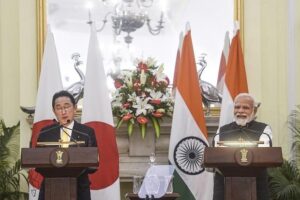

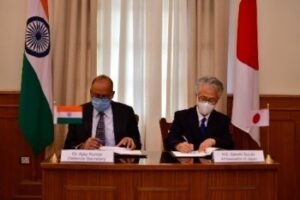
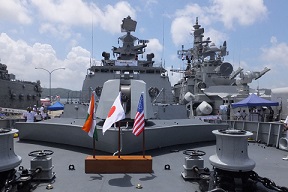
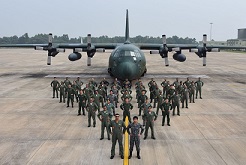

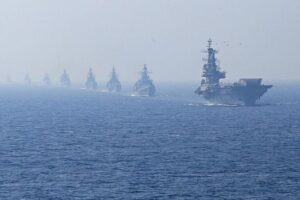

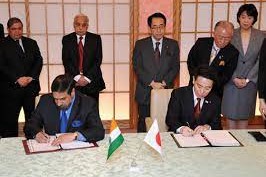

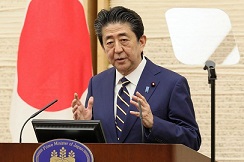
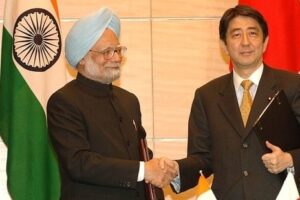
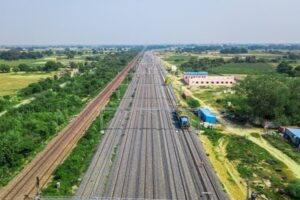
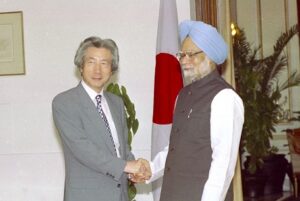
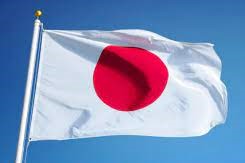
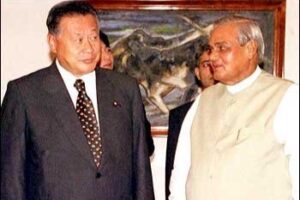
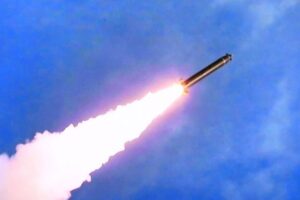
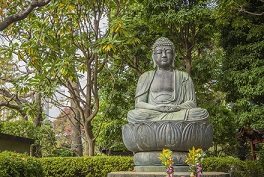


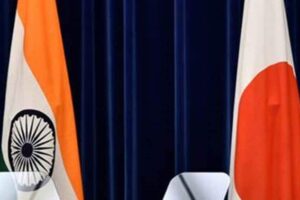
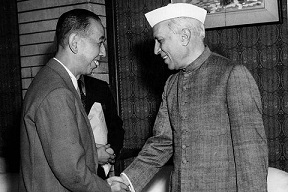
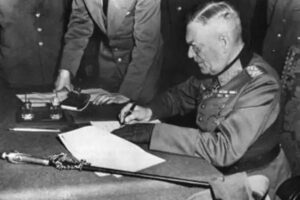

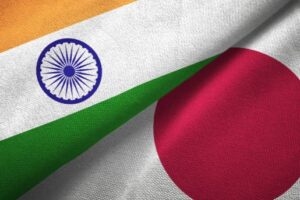
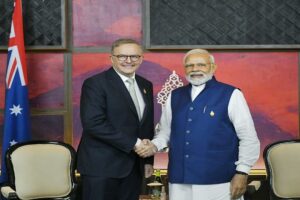
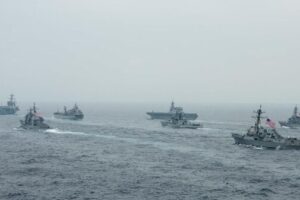
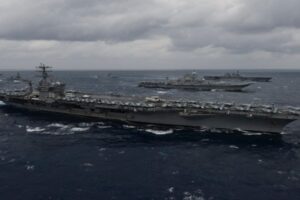
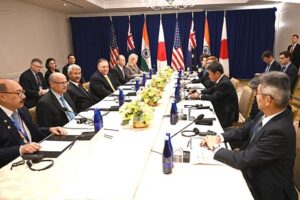
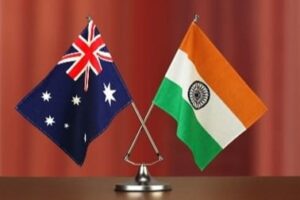
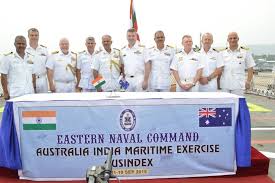

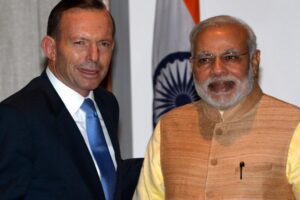
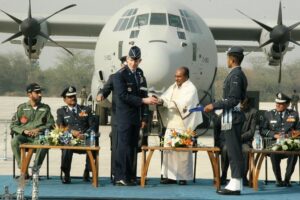
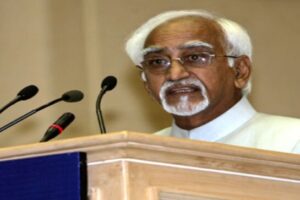


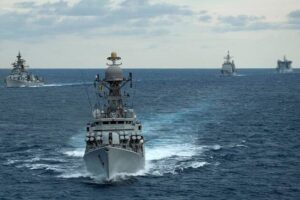
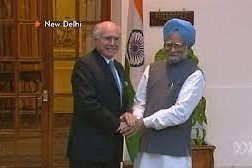
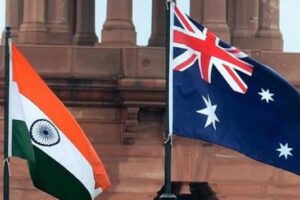
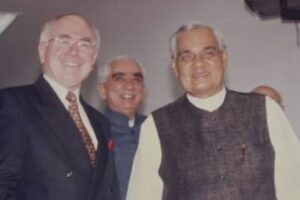
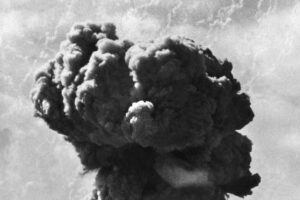
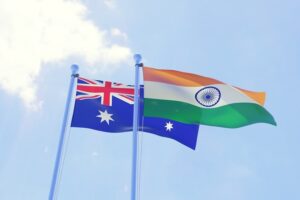

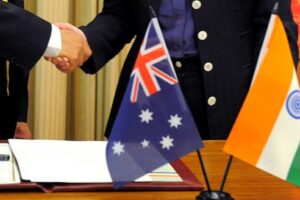
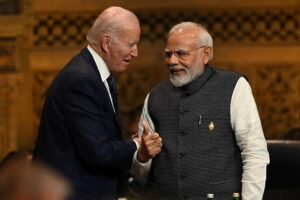
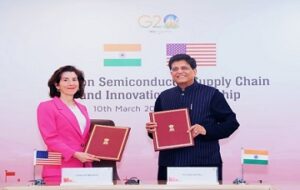
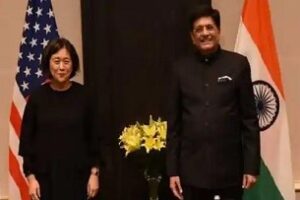
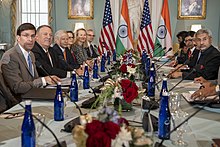
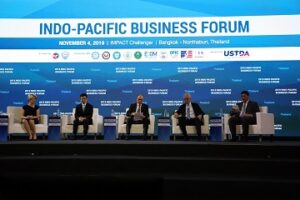
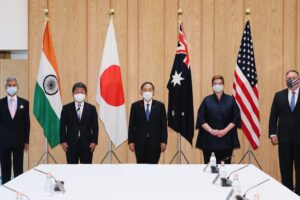
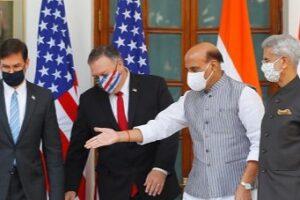
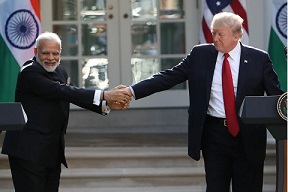
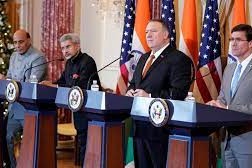
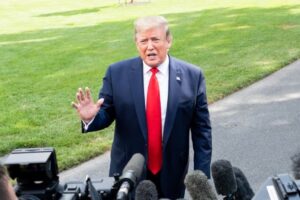
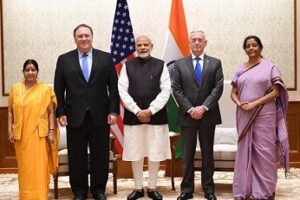
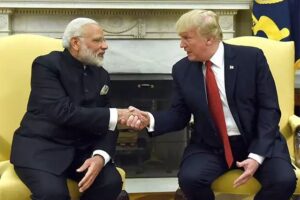
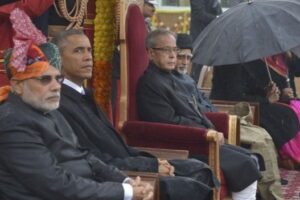
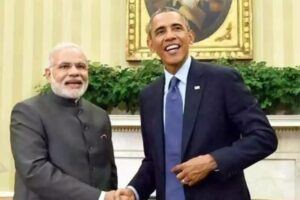
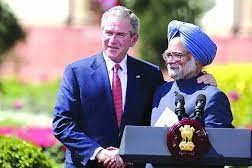
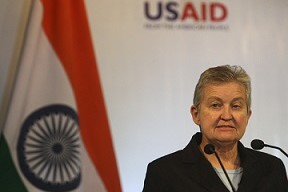
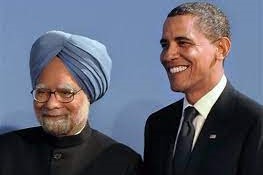
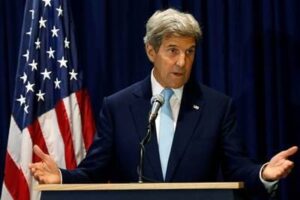
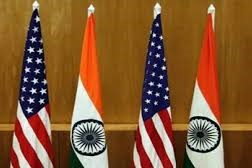
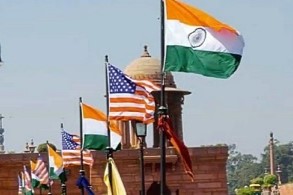
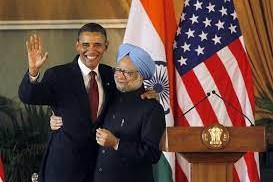
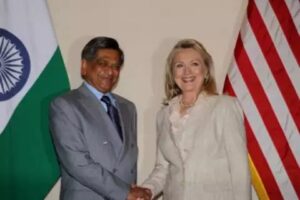
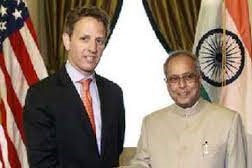
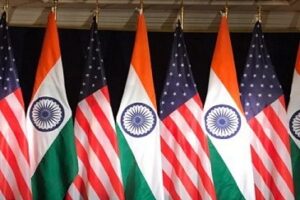
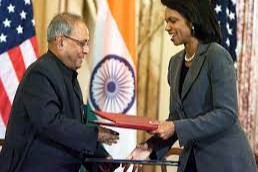

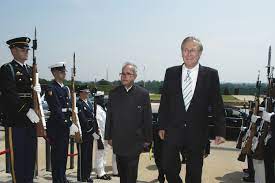

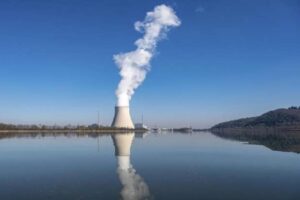
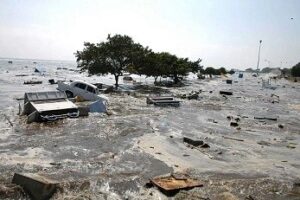
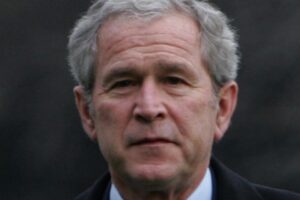
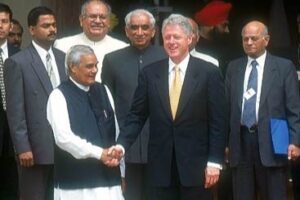
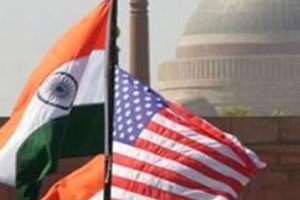
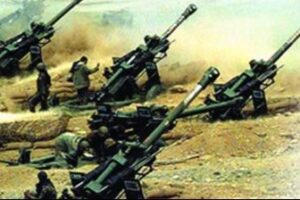
 onducted a total of five underground nuclear tests, breaking a 24-year self-imposed moratorium on nuclear testing. Pakistan followed, claiming 5 tests on May 28, 1998, and an additional test on May 30. The unannounced tests created a global storm of criticism, as well as a serious setback for decades of U.S. nuclear nonproliferation efforts in South Asia. On May 13, 1998, President Clinton imposed economic and military sanctions on India, mandated by Section 102 of the Arms Export Control Act (AECA), and applied the same sanctions to Pakistan on May 30. Some effects of the sanctions on India included: termination of $21 million in FY1998 economic development assistance; postponement of $1.7 billion in lending by the International Financial Institutions (IFI), as supported by the Group of Eight (G-8) leading industrial nations; prohibition on loans or credit from U.S. banks to the government of India; and termination of Foreign Military Sales under the Arms Export Control Act. Humanitarian assistance, food, or other agricultural commodities are excepted from sanctions under the law.
onducted a total of five underground nuclear tests, breaking a 24-year self-imposed moratorium on nuclear testing. Pakistan followed, claiming 5 tests on May 28, 1998, and an additional test on May 30. The unannounced tests created a global storm of criticism, as well as a serious setback for decades of U.S. nuclear nonproliferation efforts in South Asia. On May 13, 1998, President Clinton imposed economic and military sanctions on India, mandated by Section 102 of the Arms Export Control Act (AECA), and applied the same sanctions to Pakistan on May 30. Some effects of the sanctions on India included: termination of $21 million in FY1998 economic development assistance; postponement of $1.7 billion in lending by the International Financial Institutions (IFI), as supported by the Group of Eight (G-8) leading industrial nations; prohibition on loans or credit from U.S. banks to the government of India; and termination of Foreign Military Sales under the Arms Export Control Act. Humanitarian assistance, food, or other agricultural commodities are excepted from sanctions under the law. 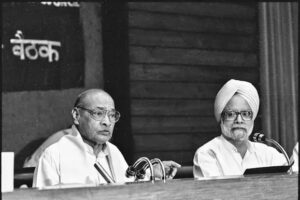
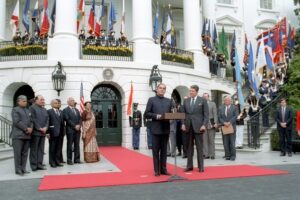
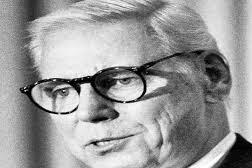
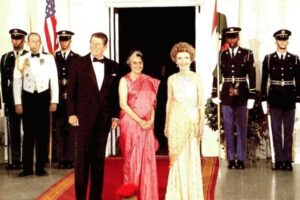

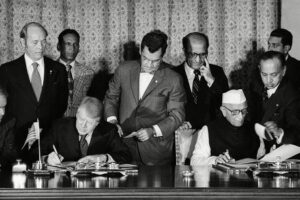
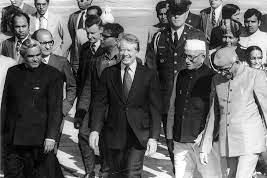

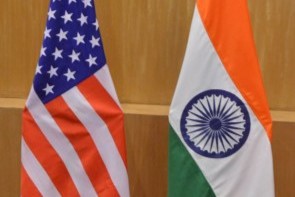

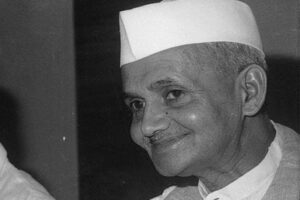

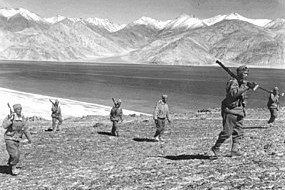

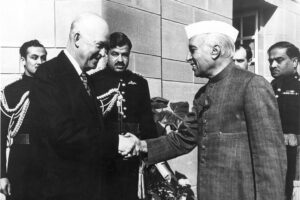

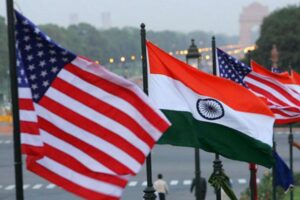
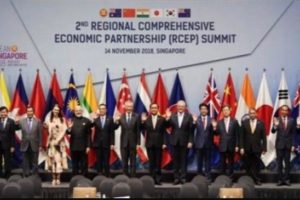 The first ministerial level meeting of QUAD was held on the sidelines of the United Nations General Assembly in New York. Before this, the QUAD had
The first ministerial level meeting of QUAD was held on the sidelines of the United Nations General Assembly in New York. Before this, the QUAD had AusIndEx is an exercise between India and Australia which was first held in 2015.The Australian
AusIndEx is an exercise between India and Australia which was first held in 2015.The Australian 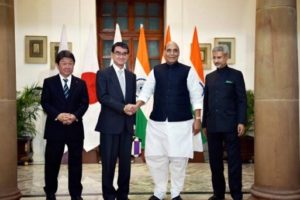

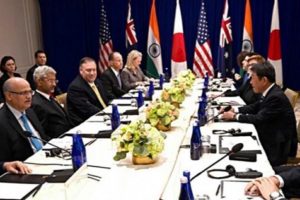

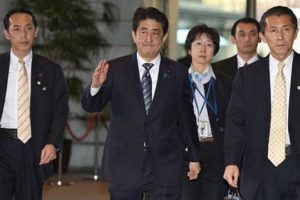
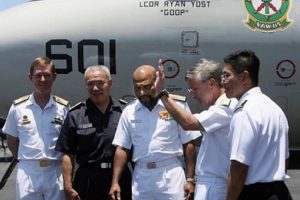
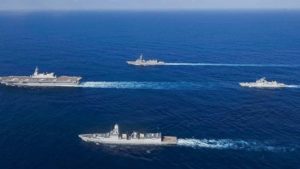

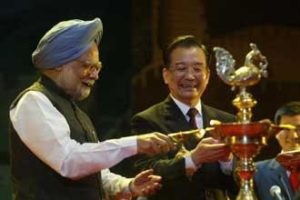 On recommendations of the Japanese government, the four countries met at Manila, Philippines for ASEAN Regional Forum (ARF) originally, but also ended up having a meeting of what we call the first meeting of four nation states on issues of
On recommendations of the Japanese government, the four countries met at Manila, Philippines for ASEAN Regional Forum (ARF) originally, but also ended up having a meeting of what we call the first meeting of four nation states on issues of 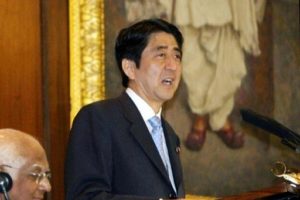 On his official visit to India, Japanese PM Mr. Shinzo Abe reinforced the ties of two nations, i.e., Japan and India with his famous speech about
On his official visit to India, Japanese PM Mr. Shinzo Abe reinforced the ties of two nations, i.e., Japan and India with his famous speech about  In 2007, Japanese President Shinzo Abe resigned from his post citing health reasons. This had a significant impact on QUAD as he was the architect & advocate of QUAD. His successor, Yasuo Fukuda, did not take up QUAD with such zeal leading to dormancy of the forum. (
In 2007, Japanese President Shinzo Abe resigned from his post citing health reasons. This had a significant impact on QUAD as he was the architect & advocate of QUAD. His successor, Yasuo Fukuda, did not take up QUAD with such zeal leading to dormancy of the forum. (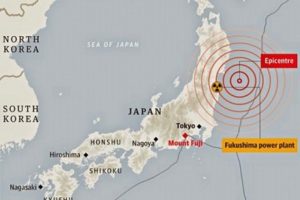 Japan earthquake and tsunami of 2011, also called Great Sendai Earthquake or Great Tōhoku Earthquake, was a 9.0 magnitude earthquake which struck below the floor of the Western Pacific at 2:49 PM. The powerful earthquake affected the northeastern coast of Honshu, Japan’s main island, and also initiated a series of large tsunami waves that devastated coastal areas of Japan, which also led to a major nuclear accident. Japan received aid from India, US, Australia as well as other countries. US Navy aircraft carrier was dispatched to the area and Australia sent search-and-rescue teams.
Japan earthquake and tsunami of 2011, also called Great Sendai Earthquake or Great Tōhoku Earthquake, was a 9.0 magnitude earthquake which struck below the floor of the Western Pacific at 2:49 PM. The powerful earthquake affected the northeastern coast of Honshu, Japan’s main island, and also initiated a series of large tsunami waves that devastated coastal areas of Japan, which also led to a major nuclear accident. Japan received aid from India, US, Australia as well as other countries. US Navy aircraft carrier was dispatched to the area and Australia sent search-and-rescue teams. 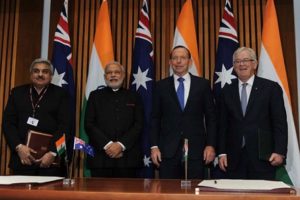 India and Australia signed the
India and Australia signed the 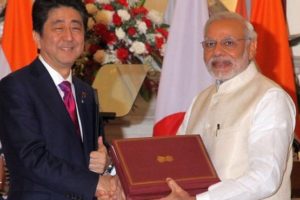 The India-Japan Agreement for Cooperation in the Peaceful Uses of Nuclear Energy was signed on 11 November, 2016 and came into force on 20 July, 2017 which was representative of strengthening ties between India and Japan. Diplomatic notes were exchanged between Dr. S. Jaishankar and H.E. Mr. Kenji Hiramatsu, Ambassador of Japan to India. (
The India-Japan Agreement for Cooperation in the Peaceful Uses of Nuclear Energy was signed on 11 November, 2016 and came into force on 20 July, 2017 which was representative of strengthening ties between India and Japan. Diplomatic notes were exchanged between Dr. S. Jaishankar and H.E. Mr. Kenji Hiramatsu, Ambassador of Japan to India. (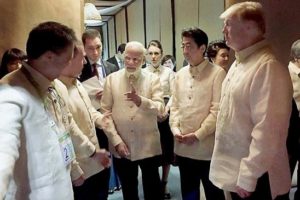 The foreign ministry
The foreign ministry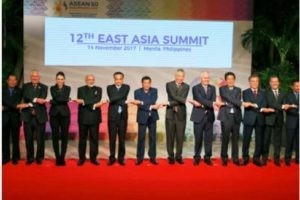 The Officials of QUAD member countries met in Singapore on November 15, 2018 for consultation on regional & global issues of common interest. The main discussion revolved around connectivity, sustainable development, counter-terrorism, maritime and cyber security, with the view to promote peace, stability and prosperity in the
The Officials of QUAD member countries met in Singapore on November 15, 2018 for consultation on regional & global issues of common interest. The main discussion revolved around connectivity, sustainable development, counter-terrorism, maritime and cyber security, with the view to promote peace, stability and prosperity in the 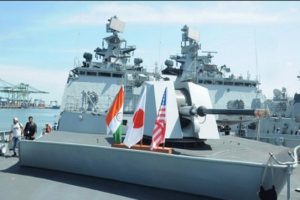 The 23rd edition of trilateral Malabar maritime exercise between India, US and Japan took place on 26 September- 04 October, 2019 off the coast of Japan.
The 23rd edition of trilateral Malabar maritime exercise between India, US and Japan took place on 26 September- 04 October, 2019 off the coast of Japan. 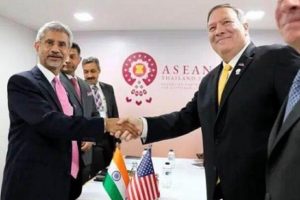 After the first ministerial level meeting of QUAD in September, 2019, the senior officials of US, Japan, India and Australia again met for consultations in Bangkok on the margins of the East Asia Summit. Statements were issued separately by the four countries. Indian Ministry of External Affairs said “In statements issued separately by the four countries, MEA said, “proceeding from the strategic guidance of their Ministers, who met in New York City on the sidelines of the UN General Assembly recently, the officials exchanged views on ongoing and additional practical cooperation in the areas of connectivity and infrastructure development, and security matters, including counterterrorism, cyber and maritime security, with a view to promoting peace, security, stability, prosperity in the Indo-Pacific region.”
After the first ministerial level meeting of QUAD in September, 2019, the senior officials of US, Japan, India and Australia again met for consultations in Bangkok on the margins of the East Asia Summit. Statements were issued separately by the four countries. Indian Ministry of External Affairs said “In statements issued separately by the four countries, MEA said, “proceeding from the strategic guidance of their Ministers, who met in New York City on the sidelines of the UN General Assembly recently, the officials exchanged views on ongoing and additional practical cooperation in the areas of connectivity and infrastructure development, and security matters, including counterterrorism, cyber and maritime security, with a view to promoting peace, security, stability, prosperity in the Indo-Pacific region.”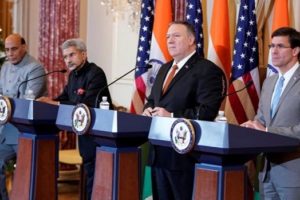 US 2+2 Ministerial Dialogue was held on 18 December, 2019, in Washington DC. Secretary of State Michael R. Pompeo and Secretary of Defense Mark T. Esper will host Indian Minister of External Affairs Dr. S. Jaishankar and Minister of Defense Shri Rajnath Singh. The discussion focussed on deepening bilateral strategic and defense cooperation, exchanging perspectives on global developments, and our shared leadership in the Indo-Pacific region.The two democracies signed the Industrial Security Annex before the 2+2 Dialogue. Assessments of the situation in Afghanistan, Pakistan, Nepal, Sri Lanka, and the Indian Ocean region in general were shared between both countries. (
US 2+2 Ministerial Dialogue was held on 18 December, 2019, in Washington DC. Secretary of State Michael R. Pompeo and Secretary of Defense Mark T. Esper will host Indian Minister of External Affairs Dr. S. Jaishankar and Minister of Defense Shri Rajnath Singh. The discussion focussed on deepening bilateral strategic and defense cooperation, exchanging perspectives on global developments, and our shared leadership in the Indo-Pacific region.The two democracies signed the Industrial Security Annex before the 2+2 Dialogue. Assessments of the situation in Afghanistan, Pakistan, Nepal, Sri Lanka, and the Indian Ocean region in general were shared between both countries. (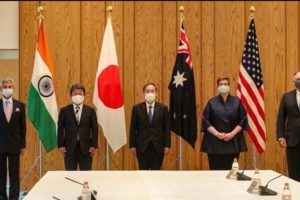 The foreign ministers of QUAD continued their discussions from the last ministerial level meeting in 2019, on 6 October, 2020. While there was no joint statement released, all countries issued individual readouts. As per the issue readout by India, the discussion called for a coordinated response to the challenges including financial problems emanating from the pandemic, best practices to combat Covid-19, increasing the resilience of supply chains, and enhancing access to affordable vaccines, medicines and medical equipment. There was also a focus on maintaining stability in the Indo-Pacific region amidst growing tensions. Australian media release mentions “We emphasised that, especially during a pandemic, it was vital that states work to ease tensions and avoid exacerbating long-standing disputes, work to counter disinformation, and refrain from malicious cyberspace activity. Ministers reiterated that states cannot assert maritime claims that are inconsistent with international law, particularly the United Nations Convention on the Law of the Sea (UNCLOS).”
The foreign ministers of QUAD continued their discussions from the last ministerial level meeting in 2019, on 6 October, 2020. While there was no joint statement released, all countries issued individual readouts. As per the issue readout by India, the discussion called for a coordinated response to the challenges including financial problems emanating from the pandemic, best practices to combat Covid-19, increasing the resilience of supply chains, and enhancing access to affordable vaccines, medicines and medical equipment. There was also a focus on maintaining stability in the Indo-Pacific region amidst growing tensions. Australian media release mentions “We emphasised that, especially during a pandemic, it was vital that states work to ease tensions and avoid exacerbating long-standing disputes, work to counter disinformation, and refrain from malicious cyberspace activity. Ministers reiterated that states cannot assert maritime claims that are inconsistent with international law, particularly the United Nations Convention on the Law of the Sea (UNCLOS).”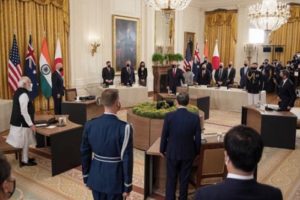 On September 24, President Biden hosted Prime Minister Scott Morrison of Australia, Prime Minister Narendra Modi of India, and Prime Minister Yoshihide Suga of Japan at the White House for the first-ever in-person Leaders’ Summit of the QUAD. The leaders released a Joint Statement which summarised their dialogue and future course of action. The regional security of the Indo-Pacific and strong confidence in the ASEAN remained on the focus along with response to the Pandemic.
On September 24, President Biden hosted Prime Minister Scott Morrison of Australia, Prime Minister Narendra Modi of India, and Prime Minister Yoshihide Suga of Japan at the White House for the first-ever in-person Leaders’ Summit of the QUAD. The leaders released a Joint Statement which summarised their dialogue and future course of action. The regional security of the Indo-Pacific and strong confidence in the ASEAN remained on the focus along with response to the Pandemic. 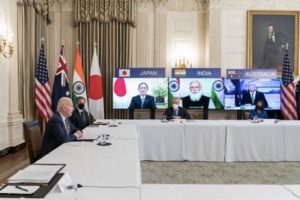 The QUAD Vaccine Partnership was announced at the first QUAD Summit on 12 March 2021 where QUAD countries agreed to deliver 1.2 billion vaccine doses globally. The aim was to expand and finance vaccine manufacturing and equipping the Indo-Pacific to build resilience against Covid-19. The launch of a senior-level QUAD Vaccine Experts Group, comprised of top scientists and officials from all QUAD member governments was also spearheaded.
The QUAD Vaccine Partnership was announced at the first QUAD Summit on 12 March 2021 where QUAD countries agreed to deliver 1.2 billion vaccine doses globally. The aim was to expand and finance vaccine manufacturing and equipping the Indo-Pacific to build resilience against Covid-19. The launch of a senior-level QUAD Vaccine Experts Group, comprised of top scientists and officials from all QUAD member governments was also spearheaded.  Although the Tsunami Core group had to be disbanded on fulfilment of its purpose, however the quadrilateral template that formed remained intact as a successful scaffolding of four countries, as stated by authors Patrick Gerard Buchan and Benjamin Rimland in their diplomatic brief about QUAD ( you can access the brief at
Although the Tsunami Core group had to be disbanded on fulfilment of its purpose, however the quadrilateral template that formed remained intact as a successful scaffolding of four countries, as stated by authors Patrick Gerard Buchan and Benjamin Rimland in their diplomatic brief about QUAD ( you can access the brief at 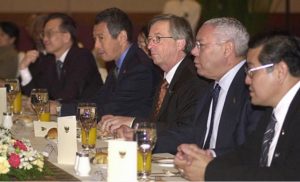 Secretary of State Colin Powell stated that the Core Tsunami Group was to be disbanded and folded and clubbed with the broader United Nations led Relief Operations. In a Tsunami Relief Conference in Jakarta, Secretary Powell stated that
Secretary of State Colin Powell stated that the Core Tsunami Group was to be disbanded and folded and clubbed with the broader United Nations led Relief Operations. In a Tsunami Relief Conference in Jakarta, Secretary Powell stated that 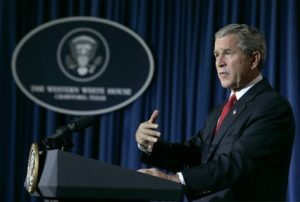 Soon after the Earthquake and Tsunami crisis, humanitarian reliefs by countries, viz., US, India, Japan, and Australia started to help the 13 havoc-stricken countries. The US initially promised $ 35 Millions in aid. However, on 29
Soon after the Earthquake and Tsunami crisis, humanitarian reliefs by countries, viz., US, India, Japan, and Australia started to help the 13 havoc-stricken countries. The US initially promised $ 35 Millions in aid. However, on 29 At 7:59AM local time, an earthquake of 9.1 magnitude (undersea) hit the coast of Sumatra, an Indonesian island. As a result of the same, massive waves of Tsunami triggered by the earthquake wreaked havoc for 7 hours across the Indian Ocean and to the coastal areas as far away as East Africa. The infamous Tsunami killed around 225,000 people, with people reporting the height of waves to be as high as 9 metres, i.e., 30 feet. Indonesia, Srilanka, India, Maldives, Thailand sustained horrendously massive damage, with the death toll exceeding 200,000 in Northern Sumatra’s Ache province alone. A great many people, i.e., around tens of thousands were found dead or missing in Srilanka and India, mostly from Andaman and Nicobar Islands of Indian territory. Maldives, being a low-lying country, also reported casualties in hundreds and more, with several non-Asian tourists reported dead or missing who were vacationing. Lack of food, water, medicines burgeoned the numbers of casualties, with the relief workers finding it difficult to reach the remotest areas where roads were destroyed or civil war raged. Long-term environmental damage ensued too, as both natural and man-made resources got demolished and diminished.
At 7:59AM local time, an earthquake of 9.1 magnitude (undersea) hit the coast of Sumatra, an Indonesian island. As a result of the same, massive waves of Tsunami triggered by the earthquake wreaked havoc for 7 hours across the Indian Ocean and to the coastal areas as far away as East Africa. The infamous Tsunami killed around 225,000 people, with people reporting the height of waves to be as high as 9 metres, i.e., 30 feet. Indonesia, Srilanka, India, Maldives, Thailand sustained horrendously massive damage, with the death toll exceeding 200,000 in Northern Sumatra’s Ache province alone. A great many people, i.e., around tens of thousands were found dead or missing in Srilanka and India, mostly from Andaman and Nicobar Islands of Indian territory. Maldives, being a low-lying country, also reported casualties in hundreds and more, with several non-Asian tourists reported dead or missing who were vacationing. Lack of food, water, medicines burgeoned the numbers of casualties, with the relief workers finding it difficult to reach the remotest areas where roads were destroyed or civil war raged. Long-term environmental damage ensued too, as both natural and man-made resources got demolished and diminished.
No responses yet